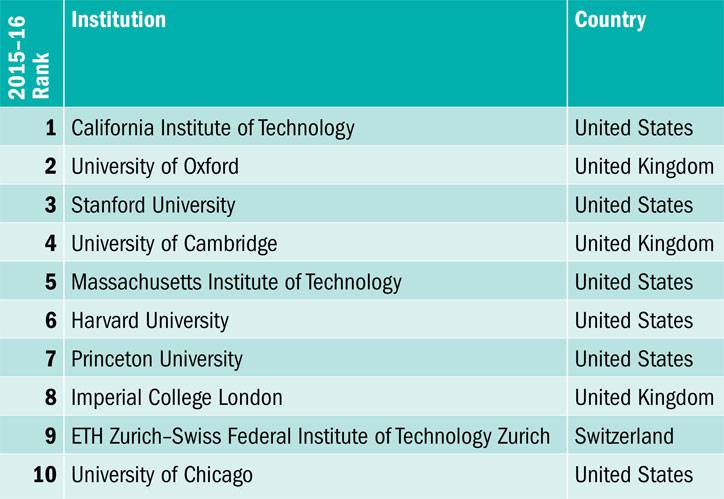
Simon Marginson, professor of international higher education at the UCL Institute of Education, said that US research is “not declining in the absolute sense”, but rather “other countries are improving and crowding into the top 200 space”.
One of these competitor nations is the UK, which has improved its standing this year. A total of 78 UK institutions feature in the top 800, with 34 of these sitting in the first quarter, up from 29 last year.
Other countries in Europe have also performed well. Germany has 20 universities in the top 200, a rise of eight since last year, while the Netherlands has 12 in the first quarter, up from 11. Meanwhile, Switzerland’s ETH Zurich is the first non-Anglo-American institution to make the top 10 for a decade.
Overall, Europe has 345 universities in the world top 800, meaning its institutions comprise more than two-fifths of the table.
Professor Marginson said that the results reveal that “15 years of consolidation of higher education, in the Nordic countries, the Low Countries and German-speaking world, is now bearing fruit”.
In particular, he cited national programmes to foster research concentrations, the European Research Area grant programmes, the Bologna-instigated reforms, and “carefully managed immigration policies that decouple high-talent recruitment from other forms of migration” as strategies that have improved their university systems.
No comments:
Post a Comment